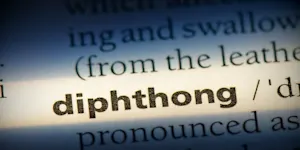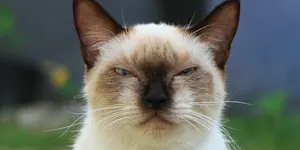What Makes This Word Tick
The word "limerick" sparkles with double meaning! Not only does it refer to a playful, five-line poem with a distinctive rhythm and rhyme scheme (AABBA), but it's also the name of a charming city and county in Ireland. This dual identity adds a layer of intrigue and whimsy to the word.
If Limerick Were a Person…
If limerick were a person, picture a jolly old uncle at family gatherings, always ready with a quick-witted poem to make you chuckle. Full of jovial charm, they'd be the life of any party, delighting with clever quips and endless humor.
How This Word Has Changed Over Time
Originally a somewhat bawdy form of entertainment, limericks have retained their playful essence but are often now toned down for family-friendly fun. Over time, what started as a humorous verses often passed during drinking sessions has found its way into children's literature and light-hearted competitions.
Old Sayings and Proverbs That Use Limerick
While limericks themselves are often considered forms of verbal play rather than embedded in old sayings, their playful style reflects the Irish love of storytelling and wit. Perhaps an Irish storyteller might quip, “There’s sure to be a limerick for that!” when faced with a puzzling problem.
Surprising Facts About Limerick
Did you know Edward Lear, the English author, was pivotal in popularizing the limerick in his 1846 "A Book of Nonsense"? This unexpected fame turned limericks into popular English verse, though they existed long before in various forms. And get this, November 3rd is unofficially celebrated as Limerick Day among fans!
Out and About With This Word
Once you start spotting limericks, you’ll find them everywhere—from children’s picture books to the most unexpected advertising campaigns. Their catchy rhythm and humor make them a favorite tool for teaching language rhythm and rhyme to youngsters (and the young at heart).
Pop Culture Moments Where Limerick Was Used
Limericks have popped up in a surprising number of TV shows and movies, often showcasing characters' wit or adding humor to a scene. Shows like “The Simpsons” have featured characters reciting limericks, playing up their humorous and whimsical tone.
The Word in Literature
Limericks have long been a staple of humorous literature, with authors like Ogden Nash and Lewis Carroll. They capitalize on the word's playful rhythmic structure to capture human folly in a few short lines—perfect for those with a penchant for poetry, facts, and fun in equal measure.
Moments in History with Limerick
The timelessness of limericks means they could easily have been woven into the social fabric of any rascal's pub night in history. Edward Lear's publication brought them into the literary spotlight—a true historical merging of lowbrow wit with higher artistic aspirations.
This Word Around the World
While "limerick" is quite rooted in English-speaking realms, its brand of humor—a clever mix of wit and brevity—is truly universal. You'll find poetry akin to limericks in many cultures, where humor and rhyme are just as cherished.
Where Does It Come From?
The poetic form's name is potentially tied to an old song refrain, urging everyone to join in the chorus “…Will you come up to Limerick?”—a reflection on community and inclusion. Its exact origins remain a charming mystery, steeped in tradition.
How People Misuse This Word
It's not uncommon for people to describe any short, humorous poem as a limerick, even if it doesn't meet the specific rhyme scheme or meter of true limericks. Despite this, the form’s rules give it structure that should be respected.
Words It’s Often Confused With
Lyric: Unlike limericks, lyrics are written to be paired with music.
Poem: This is the umbrella term limericks fall under, but not all poems are limericks!
Sonnet: A structured poem type too, but one that's a bit more formal and longer.
Additional Synonyms and Antonyms
While a true synonym for "limerick" is rare due to its specific structure, words like "verse," "jingle," or even "ditties" might partially align. On the flip side, words like "sonnet" or "haiku" represent other distinct poetic forms, serving as gentle antonyms.
Want to Try It Out in a Sentence?
"During the family reunion, Grandpa entertained everyone with a new limerick about a cat who fancied itself a captain."
















